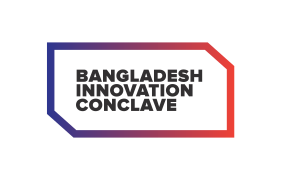Smart Healthcare Services for Extreme-Poor Households
Innovation Name: Smart Healthcare Services for Extreme-Poor Households
Category: Best Innovation in Healthcare
Company: Cordaid

The content of this case study was written by the representatives of Coraid
Bangladesh suffers from large disparities in most of the health indicators across social, economic, and demographic parameters. Bangladesh health systems financing is characterized by high out-of-pocket payments (63.3%), which is increasing. The major barriers for extreme poor households in accessing healthcare services includes the cost of treatment and distance of healthcare facilities. This unfortunate circumstance has led to people foregoing treatment, avoiding formal healthcare facilities and opting for advice from the informal sectors which often includes retail drug shops. Sunamganj, as one of the most underserved districts in Sylhet division, has a very high rate of maternal mortality of 425 deaths per 100,000
live births compared with the national average of 194. 89% of pregnant women have home deliveries assisted by non-medical birth attendants.
Objectives
Realizing the need, Cordaid with technical support from Sajida Foundation aims to increase and strengthen access to quality health care for extremely poor households.
The Idea
Currently, the project is working with 800 extreme poor households with a total of 3,200 beneficiaries. The project partnered up with two private hospitals in Sunamganj where the beneficiaries can avail various healthcare services ranging from OPD to IPD of BDT. 20,000 per year. A smart health card has been issued for each household, where the main beneficiary is female. Insurance premium is being covered by an Insurance Company and quality has been monitored by the Municipality. Finally, a digital healthcare service delivery mechanism has been introduced which will support the implementation of the national health strategy in municipalities.

Execution
- Cordaid with support of Sajida Foundation identifies beneficiaries living in slum residents and also excludes those who have access to free health cards from the NHSDP, UPHCDP, Marie Stopes Bangladesh, BRAC or any other organizations in Sunamganj Municipalities.
- Financial support through voucher scheme (insurance premium).
- Community mobilization (fieldwork to enlist beneficiaries and conduct awareness activities).
- Digital orientation to service beneficiaries and empaneled hospitals.
- Empanelment, Training and regular quality assessment of health service providers.
- Orient targeted households to improve health and nutrition seeking behavior and preventive practices including information dissemination through community volunteers, Local TV, Newspaper etc.
- Establish a feedback process and provide support to beneficiaries to address any problems. https://innovationconclavebd.com/wp-content/uploads/2022/04/7.jpgResult and Impact
- A well-designed and effective SMART Card based health voucher system to support extreme poor people in the municipality.
- Increase utilization of Primary Health Care (PHC), quality medicines, investigation by urban extreme poor people through increased and availability of services.
- Improved coverage and quality of existing PHC services by addressing service gaps including reorganizing timings, technical support to improve services and effective referral linkages.
- Transfer the system/scheme to the municipality after the project ends.
- Coordination.
- Financing strategy (micro-insurance, budget allocation).
- Sustainability.

